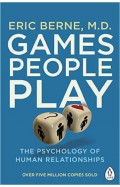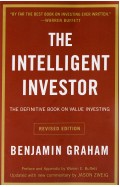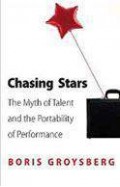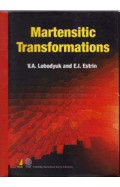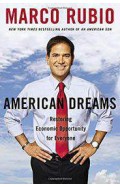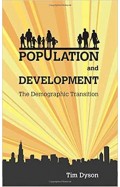- Home
- Books
- Categories
- Non Fiction
- Business & Management
- Finance, Investment & Stocks
- The Curse of Bigness - How Corporate Giants Came to Rule the World
The Curse of Bigness - How Corporate Giants Came to Rule the World
By: Tim Wu
-
Rs 1,231.75
- Rs 1,895.00
- 35%
You save Rs 663.25.
Due to constant currency fluctuation, prices are subject to change with or without notice.
'Timely and important.' -- Joseph E. Stiglitz
'Tim Wu helps shape an urgent new global conversation.' -- Shoshana Zuboff
We're three decades into a global experiment: what happens when the major nations of the world weaken their control on the size and power of corporate giants and allow unrestricted expansion?
In The Curse of Bigness, Tim Wu exposes the threats monopolies pose to economic stability and social freedom around the world. Aided by the globalization of commerce and finance, in recent years we have seen takeovers galore that make a mockery of the ideals of competition and economic freedom. Such is the 'curse of bigness': stifled entrepreneurship, stalled productivity, dominant tech giants like Facebook and Google, and fewer choices for consumers.
Urgent and persuasive, this bold manifesto argues that we need to rediscover the anti-monopoly traditions that brought great peace and prosperity in the past.
'Timely and important.' -- Joseph E. Stiglitz
'Tim Wu helps shape an urgent new global conversation.' -- Shoshana Zuboff
We're three decades into a global experiment: what happens when the major nations of the world weaken their control on the size and power of corporate giants and allow unrestricted expansion?
In The Curse of Bigness, Tim Wu exposes the threats monopolies pose to economic stability and social freedom around the world. Aided by the globalization of commerce and finance, in recent years we have seen takeovers galore that make a mockery of the ideals of competition and economic freedom. Such is the 'curse of bigness': stifled entrepreneurship, stalled productivity, dominant tech giants like Facebook and Google, and fewer choices for consumers.
Urgent and persuasive, this bold manifesto argues that we need to rediscover the anti-monopoly traditions that brought great peace and prosperity in the past.
The Attention Merchants: From the Daily Newspaper to Social Media, How Our Time and Attention Is Harvested and Sold
By: Tim Wu
Rs 1,101.75 Rs 1,695.00 Ex Tax :Rs 1,101.75
The Curse of Bigness - How Corporate Giants Came to Rule the World
By: Tim Wu
Rs 1,231.75 Rs 1,895.00 Ex Tax :Rs 1,231.75
Zubin Mehta: A Musical Journey (An Authorized Biography)
By: VOID - Bakhtiar K. Dadabhoy
Rs 472.50 Rs 1,050.00 Ex Tax :Rs 472.50
The $100 Startup: Fire Your Boss, Do What You Love and Work Better To Live More
By: Chris Guillebeau
Rs 2,515.50 Rs 2,795.00 Ex Tax :Rs 2,515.50
Beyond the Buzz: A Deep Dive into Pakistan's Startup Ecosystem
By: Social Innovation Lab
Rs 975.00 Rs 1,500.00 Ex Tax :Rs 975.00
Games People Play: The Psychology of Human Relationships
By: Eric Berne
Rs 2,515.50 Rs 2,795.00 Ex Tax :Rs 2,515.50
Misbehaving: The Making of Behavioural Economics
By: Richard H Thaler
Rs 2,515.50 Rs 2,795.00 Ex Tax :Rs 2,515.50
Chasing Stars: The Myth of Talent and the Portability of Performance
By: Boris Groysberg
Rs 5,456.75 Rs 8,395.00 Ex Tax :Rs 5,456.75
Tactics: 10 Success Strategies for Young Professionals
By: Jan Zuchowski
Rs 906.75 Rs 1,395.00 Ex Tax :Rs 906.75
The Art of Asking: How I learned to stop worrying and let people help
By: Amanda Palmer
Rs 697.50 Rs 1,550.00 Ex Tax :Rs 697.50
Martensitic Transformations
By: V A Lobodyuk, E I Estrin
Rs 1,788.75 Rs 3,975.00 Ex Tax :Rs 1,788.75
American Dreams : Restarting the Economy and Restoring the Land of Opportunity
By: Marco Rubio
Rs 1,077.75 Rs 2,395.00 Ex Tax :Rs 1,077.75
Picture Your Prosperity: Smart Money Moves to Turn Your Vision Into Reality
By: Ellen Rogin
Rs 547.25 Rs 995.00 Ex Tax :Rs 547.25
Population and Development: The Demographic Transition
By: Tim Dyson
Rs 1,302.75 Rs 2,895.00 Ex Tax :Rs 1,302.75
The $100 Startup: Fire Your Boss, Do What You Love and Work Better To Live More
By: Chris Guillebeau
Rs 2,515.50 Rs 2,795.00 Ex Tax :Rs 2,515.50
Beyond the Buzz: A Deep Dive into Pakistan's Startup Ecosystem
By: Social Innovation Lab
Rs 975.00 Rs 1,500.00 Ex Tax :Rs 975.00
Games People Play: The Psychology of Human Relationships
By: Eric Berne
Rs 2,515.50 Rs 2,795.00 Ex Tax :Rs 2,515.50
Misbehaving: The Making of Behavioural Economics
By: Richard H Thaler
Rs 2,515.50 Rs 2,795.00 Ex Tax :Rs 2,515.50
No recently viewed books available at the moment.
Zubin Mehta: A Musical Journey (An Authorized Biography)
By: VOID - Bakhtiar K. Dadabhoy
Rs 472.50 Rs 1,050.00 Ex Tax :Rs 472.50
The Attention Merchants: From the Daily Newspaper to Social Media, How Our Time and Attention Is Harvested and Sold
By: Tim Wu
Rs 1,101.75 Rs 1,695.00 Ex Tax :Rs 1,101.75
The Curse of Bigness - How Corporate Giants Came to Rule the World
By: Tim Wu
Rs 1,231.75 Rs 1,895.00 Ex Tax :Rs 1,231.75
The $100 Startup: Fire Your Boss, Do What You Love and Work Better To Live More
By: Chris Guillebeau
Rs 2,515.50 Rs 2,795.00 Ex Tax :Rs 2,515.50
Beyond the Buzz: A Deep Dive into Pakistan's Startup Ecosystem
By: Social Innovation Lab
Rs 975.00 Rs 1,500.00 Ex Tax :Rs 975.00
Games People Play: The Psychology of Human Relationships
By: Eric Berne
Rs 2,515.50 Rs 2,795.00 Ex Tax :Rs 2,515.50
Misbehaving: The Making of Behavioural Economics
By: Richard H Thaler
Rs 2,515.50 Rs 2,795.00 Ex Tax :Rs 2,515.50












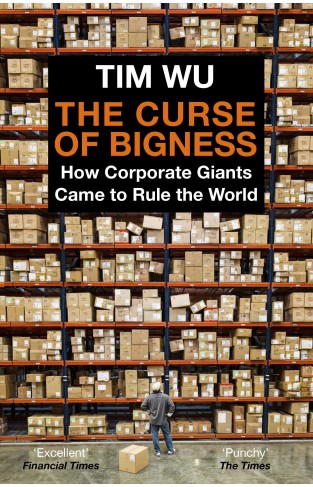

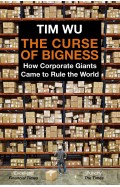
-120x187.jpg?q6)








